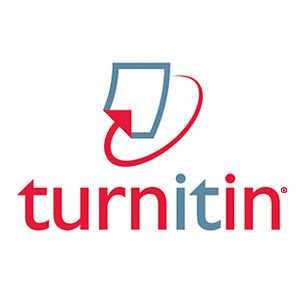The Urgency of Halal Label in Cosmetics for Muslim Women in Pemalang City
Abstract
This study focuses on the orientation of the actions of Muslim women in the city of Pemalang towards the selection of cosmetics labeled halal and the meaning that underlies these actions. The method in this study is to use a qualitative method with a phenomenological approach. The findings of this study are Muslim women in Pemalang city are aware of religious values. Halal labels found on cosmetic products with halal labels become a symbolic representation of Islam. There is an externalization process in the form of implications for consumers considering halal-labeled cosmetic products as a form of Islamic symbolic representation. The objectification process is marked by changes in behavior that are even more selective in using cosmetic products, the internalization process with the influence of environmental factors who use cosmetic products labeled halal so that it affects consumer decisions to buy cosmetic products labeled halal. After this perception, people's beliefs and attitudes arise with the existence of a halal label, and in the end these beliefs and attitudes affect people's purchases.
Keywords
Full Text:
PDFReferences
Azreen Jihan Mohd Hashim, R. M. (2014). Factors Influencing Attitude towards Halal Cosmetic among Young Adult Urban Muslim Women: A Focus Group Analysis.
Berger, P. L. Construction Theory.
BPS. (2017). National Socio-Economic Survey (SUSENAS) Kor, 2017.
Danang Sunyoto. (2012). Human Resource Management.
The goddess of asriah. (2013). Effect of Halal Label Inclusion on Purchasing Behavior.
Fitriani, P. L. R. (2014). The Urgency of Halal Labels on Cosmetics for Muslim Women In Jember City. https://repository.unej.ac.id/handle/123456789/56857%0Ahttps://repository.unej.ac.id/bitstream/handle/123456789/56857/Puji Lestari Reski Fitriani - 100810251006_1.pdf?sequence=1&isAllowed=y
Intansari, D. (2019). Halal Labeled Cosmetics (Study Among Hijabers Models in Surabaya City). Journal of Chemical Information and Modeling, 53(9), 1689–1699.
Iranita. (2013). Effect of Halal Labeling of Products onPurchase Decisions on Students of Fakultas Economics Maritime University Raja Ali Haji
Kalsum. (2019). Urgency of Using Halal Cosmetic Products Among Students class of 2017 Faculty of Economics and Islamic Business. Sharia Economics Study Program, Faculty of Economics and Islamic Business IAIN Palopo. http://repository.iainpalopo.ac.id/id/eprint/2710/1/KALSUM.pdf
Cashier. (2010). Qualitative-Quantitative Research Methodology.
Max Weber. (n.d.). Die Protestantische Ethik and the Spirit of Capitalism.
Miru Ahmadi. (2007). Consumer Protection Law. PT Raja Grafindo.
Noreen Noor, A. A. and W. E. (2013). Understanding of Halal Cosmetics Products : TPB Model.
Philip Kotler and Kevin Lane Keller. (2008). Marketing Management (13th ed.). PT Gelora Aksara Pratama.
Prof. Dr. Tanti Handriana, S.E., M. S. (2020). Millennial Buying Behavior on Halal Cosmetic Products. Unair.Ac.Id. http://news.unair.ac.id/2020/07/11/perilaku-pembelian-generasi-milenial-pada-produk-kosmetik-halal/
Radar Surabaya Jawa Pos. Millennial Lifestyle Jacks Up the Cosmetic Industry. Retrieved March 9, 2022, from https://radarsurabaya.jawapos.com/ekonomi/14/01/2020/gaya-hidup-milenial-dongkrak-industri-kosmetik/
Rafita, H. Z. (2017). the influence of halal labels on the purchase decision of cosmetic products.
Wahyu Budi Utami. (2013). Effect of Halal Labels on Buying Decisions (Survey on Buyers of Wardah Cosmetic Products At Wardah Griya Muslim An-Nisa Yogyakarta Outlet).
Widodo, T. (2015). Effect of Halal Labeling and Price on Consumer Purchase Decisions on Indomie Products (Case Study of Students of Muhammadiyah University of Surakarta). Thesis. Surakarta: Faculty of Economics and Business, University of Muhammadiyah Surakarta, 13–14. http://eprints.ums.ac.id/41384/22/skripsi full text.pdf
Yasnita. (2015). The Influence of Halal Labels on The Interest in Buying Cosmetic Treatments And Makeup in Students of The Cosmetology and Beauty Education Study Program of the Department of Family Welfare, Faculty of Engineering, State University of Padang
DOI: https://doi.org/10.24952/masharif.v10i1.5734
Refbacks
- There are currently no refbacks.
Copyright (c) 2022 Al-Masharif: Jurnal Ilmu Ekonomi dan Keislaman

This work is licensed under a Creative Commons Attribution-ShareAlike 4.0 International License.

Plagiarism Checked by:





